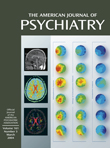Neurocognitive Dysfunction in First-Episode Psychosis: Correlates With Symptoms, Premorbid Adjustment, and Duration of Untreated Psychosis
Abstract
OBJECTIVE: The authors examined the relationship of neurocognitive function with duration of untreated psychosis, premorbid illness factors, and clinical symptoms to determine whether long duration of untreated psychosis independently compromises cognitive function. METHOD: Patients recruited to a study of the effect of an early detection program on the duration of untreated first-episode psychosis in two catchment areas were compared to patients in a similar treatment program in two other catchment areas without an early detection program. The median duration of untreated psychosis was 10.5 weeks for all patients. A total of 301 patients entered the study, and 207 completed a comprehensive neuropsychological test battery that assessed working memory/fluency, executive function, verbal learning, impulsivity, and motor speed. The median time from start of treatment to neuropsychological testing was 108 days; all patients were tested within 9 months. RESULTS: No significant association was found between duration of untreated psychosis and any of the cognitive measures. Strong associations were demonstrated between poorer premorbid school functioning and neurocognitive deficits, especially in verbal learning and working memory. No relationship was found between neurocognitive functions and clinical measures, except for an inverse correlation of Positive and Negative Syndrome Scale negative symptoms and working memory and a positive correlation between positive symptoms and motor speed. CONCLUSIONS: The data contribute to a disconfirmation of the hypothesis of an association between duration of untreated psychosis and neurocognitive performance at baseline.



